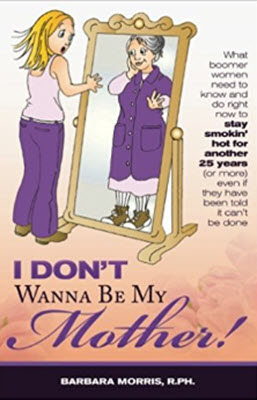
 My “anti-aging” goal has always been not to stay young (which we all know is impossible) but to stay healthy, mentally and physically youthful and above all remain independent.
My “anti-aging” goal has always been not to stay young (which we all know is impossible) but to stay healthy, mentally and physically youthful and above all remain independent.
It’s absolutely dreadful to work most or all of your life and get to your 60s, 70s, and beyond and then end up dependent on others to help take care of you. It’s especially unfortunate when dependence is not the result of events beyond your control, but the result of your own actions or lack of proper actions.
I get it that many older people enjoy being taken care of. Their philosophy is that they’ve done for others all of their lives and figure that when they reach retirement age it’s time for others to take care of them. It’s not smart. It not only curtails personal freedom, but it accelerates weakness and decline.
I’ve heard all the reasons why old age decline is inevitable and unavoidable and for the most part, the reasons are an excuse to justify failure to do what should have or could have been done to stay healthy and vital.
Many midlife women complain about their mothers in need of care, “She won’t do this or she won’t do that” to help herself, yet in many ways the same midlife women who complain about their mothers are neglecting to do what should and can be done to avoid becoming or acquiring the worst decline characteristic of their mothers.
For a long time I had been trying to understand why healthy, vibrant people decline, mentally and physically, so rapidly after retirement age.
My “Aha!” moment of understanding occurred when I read Successful Aging by gerontologist John W. Rowe, MD. In his book he wrote,
“The bottom line is very clear: with rare exceptions only about 30 percent of physical aging can be blamed on genes . . . only about half of the changes in mental function with aging are genetic. This leaves substantial room for a healthy lifestyle to protect the mind and body. And better yet, as we grow older, genetics becomes less important, and environment becomes more important. The likelihood of being fat, having hypertension, high cholesterol and triglyceride levels, and the rate at which one’s lung function declines with advancing age , by and large, largely not inherited. The risks are due to environmental factors.”
What are those “environmental factors” that contribute to old age decline? Included are the foods we eat, the places and spaces we live in, and the influence of those with whom we live and associate with most often. Environmental factors also include (but are not limited to) what we watch and take in from television and the Internet. In brief: how well we age, aside for genetics and unavoidable circumstances, depends on what we allow to go on in our head relative to how we see ourselves in the aging process and how we choose to live, and with whom.
I recently re-read a book I published in 2010, I Don’t Wanna Be My Mother which is probably one of the best books I’ve written because it succinctly lays out the causes and preventive measures that can be taken to avoid old age decline, especially the type of decline often displayed by our mothers. We don’t have to emulate failure; we can live successfully in the older years when we are open to fresh ideas and have a reliable roadmap to show the way.
I invite you to pick up a copy of I Don’t Wanna Be My Mother. It’s a fast no-nonsense, no fluff read that respects your time and intelligence. It’s available on Amazon.